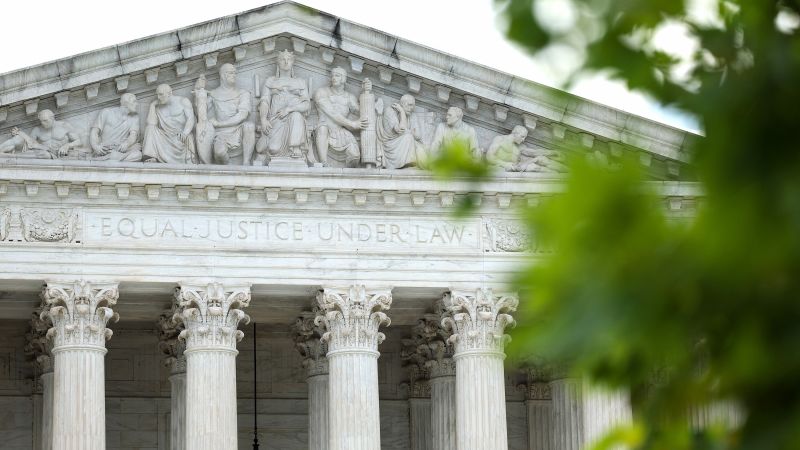A mostly White group of voters in Louisiana is challenging the proposed congressional districts, claiming the map is morally repugnant. State lawmakers drew a new map that includes a second majority-Black district, which was found to violate the Constitution’s equal protection clause by a conservative-leaning lower court. This new district was created in response to a previous ruling that found the initial map discriminated against Black voters in Louisiana, who make up nearly a third of the population, but accounted for a majority in only one district.
The group of mostly White voters has filed an emergency appeal with the Supreme Court to challenge the new congressional map. They argue that the map is morally repugnant and not a close call. The Supreme Court’s decision on this case could have national implications as it raises questions about how mapmakers consider race when redrawing congressional boundaries every decade. This decision could also impact control of the US House, where Republicans currently hold a narrow majority.
Louisiana officials and a group of Black voters have urged the Supreme Court to intervene in the fight and quickly resolve the dispute. The state is facing an election deadline with no viable congressional map in place. The lack of resolution in the redistricting process has left Louisiana in an impossible situation for the upcoming election cycle. The Supreme Court could decide whether to allow the map to be used on a temporary basis as early as this week, which could have a significant impact on the upcoming election.
The ongoing legal battle over Louisiana’s congressional map has drawn attention to the issue of race and representation in redistricting. The creation of a second majority-Black district has sparked controversy and legal challenges, with both White and Black voters expressing concerns over the impact this map could have on the state’s political landscape. The Supreme Court’s decision in this case will have far-reaching consequences and could set a precedent for how states handle redistricting based on racial considerations.
The conflicting viewpoints on the new congressional map highlight the complexities and challenges of redistricting, especially when it comes to addressing issues of racial representation. The legal battle in Louisiana could serve as a test case for how courts grapple with these issues in the future. The Supreme Court’s decision on this case will not only impact Louisiana but could also influence the redistricting process in other states and shape the future of political representation in the United States.
As the Supreme Court considers the emergency appeal over Louisiana’s congressional map, the clock is ticking on the state’s ability to implement a new map for the upcoming election. The lack of resolution in this dispute has left Louisiana in a state of uncertainty, with the outcome of the Supreme Court’s decision set to have far-reaching consequences. The legal battle over the congressional map underscores the challenges and controversies that come with redistricting and highlights the importance of ensuring fair representation for all voters, regardless of race.















